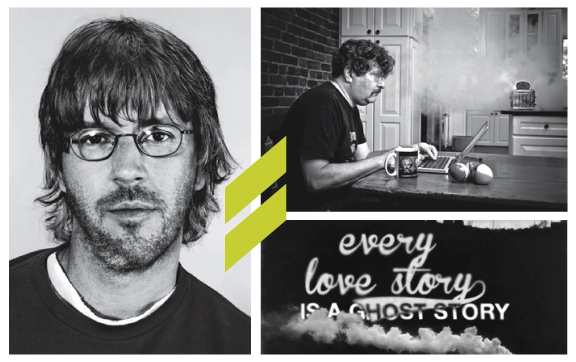My favorite books this year were both nonfiction (one biography). I don't think that's ever happened. I've always enjoyed well-written nonfiction and duly acknowledge, when done right, it's as potent a form storytelling as anything else, but it has never held the near-magical, whizzpop allure for me that fiction does. Being said, it's taken a few fantastic journalists to top my list this year.
YAY!
Every Love Story is a Ghost Story by D.T. Max
Fiddler in the Subway by Gene Weingarten
OVERALL YAY
Most Evil by Steve Hodel
Outliers by Malcolm Gladwell
And Then We Came To The End by Josh Ferris
Every Love Story is a Ghost Story
Obviously, I enjoyed Max's piecing-together of my foremost literary idol and muse. Easy sell.
All writers "borrow" and I steal from him probably more than anyone else, just as he stole from DeLillo and Pynchon, and they stole from . . . .etc. I've written about DFW before, and my admiration for the man has only grown since I fortuitously stumbled across him my first week in the MFA. I've read about half of his work posthumously, and even more interviews and microbiographies, and I'm sure more will continue to surface. I knew a lot about him back then, and what I knew I greatly respected, but I loved this more complete portrait of the artist as a young (and brilliant) man.
As a undergrad, he was often a mess - a depressive, cocky, sweaty schlub - that much I knew - but it was nice to see how Max unearthed some new material that helps in understanding why he was those things. He was a gentle, polite midwesterner, in love with love and ideation and the Big Questions, but underneath he was battling some very real demons, including the depression that would ultimately claim his life. Though I don't find all his works brilliant (a handful's uber-postmodernism get in the way, big-time) DFW has always held some cosmic pull for me, and I'm starting to understand why.
I guess I could put it this way - I've read many books and stories and felt like I truly understood what the author (or characters) were getting at or going through. This empathy comes easy for me. What has NEVER happened, is that as I read about his life, I felt like he was somehow - in some metaphysical, corndog way - able to understand me. I'm reading all about his Illinois childhood and love of reading and sports and junk culture and all that, and I feel like as I'm reading about his life, he is understanding mine. There are major and syrupy logic problems here, which of course DFW, a born logician, would love to refute if he were living.
Also, I loved this essay he wrote on cruises in the 90's. I just reread it after I went on my inaugural cruise last week and it made me laugh even more the second time.
Fiddler in the Subway
Two-time Pulitzer Prize winner Gene Weingarten came out of nowhere for me. I'd never even heard of the man. My father-in-law gave Jared this book in the spring, and the two of us kept stealing it off each other's nightstands for months. We'd be in bed each reading our books, and one of us would laugh out loud, or say "did you read this one? This one is great."
It's not often that I've loved any complication of stories in its entirety, but I'd say that was the case here. He's a very funny writer and he's picked some grand topics. All of its enjoyable, but my favorite stories actually come closer to the end of the book. "The Armpit of America" made me LOL a few times, "Doonesbury's War" and "None of the Above" were some of the best non-political political essays I've read in a long time, and "Fatal Distraction" left me in tears. Like, ugly, crying-alone-in-my-bed-in-pajamas-at-11-in-the-morning- tears. Recommended.
The others I will only say a little about.
Most Evil. Most fascinating story of a Marquis de Sade type serial killer, (written by his homicide detective son!) Quick, someone make a miniseries!
Outliers. Finally got around to reading this, though it's been on my nightstand for more than a couple years. It's interesting, easy. I'm amazed how often I'm able to join conversations based on what I've learned from these stories.
And Then We Came To The End feels close to home for anyone who's worked in an office for a long period of time, where your co-workers somehow spend more time with you than anyone else, and you know about their medical problems in more detail than you should, and their love lives, and you've memorized there wardrobe entirely. Even funnier if you've worked in advertising. You'll get all the inside jokes and there are some ones in there that ring both hilarious and true.



0 comments :
Post a Comment